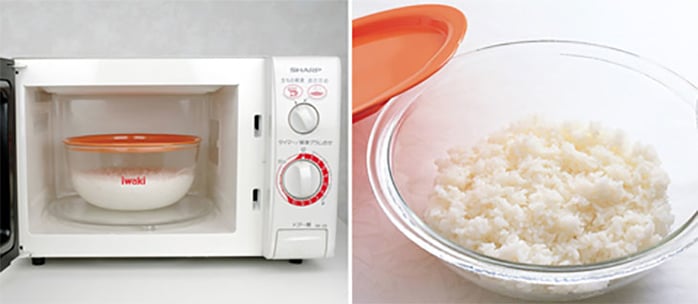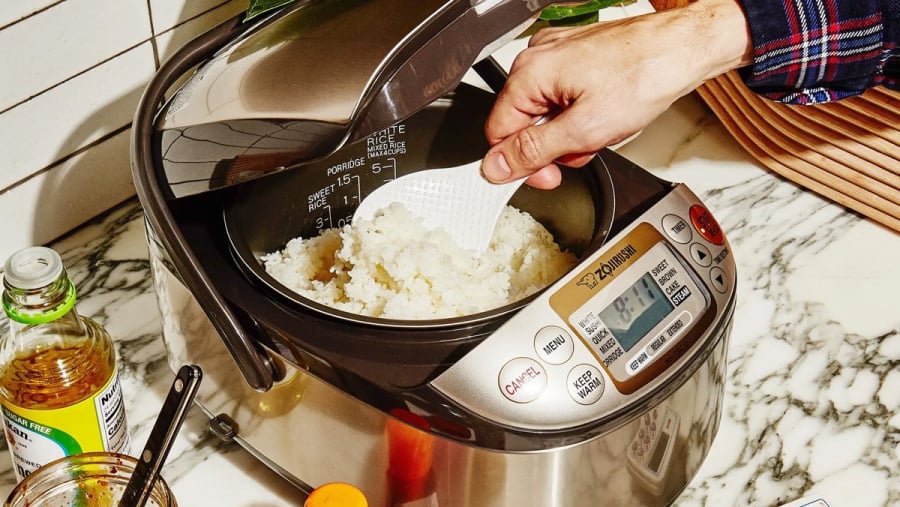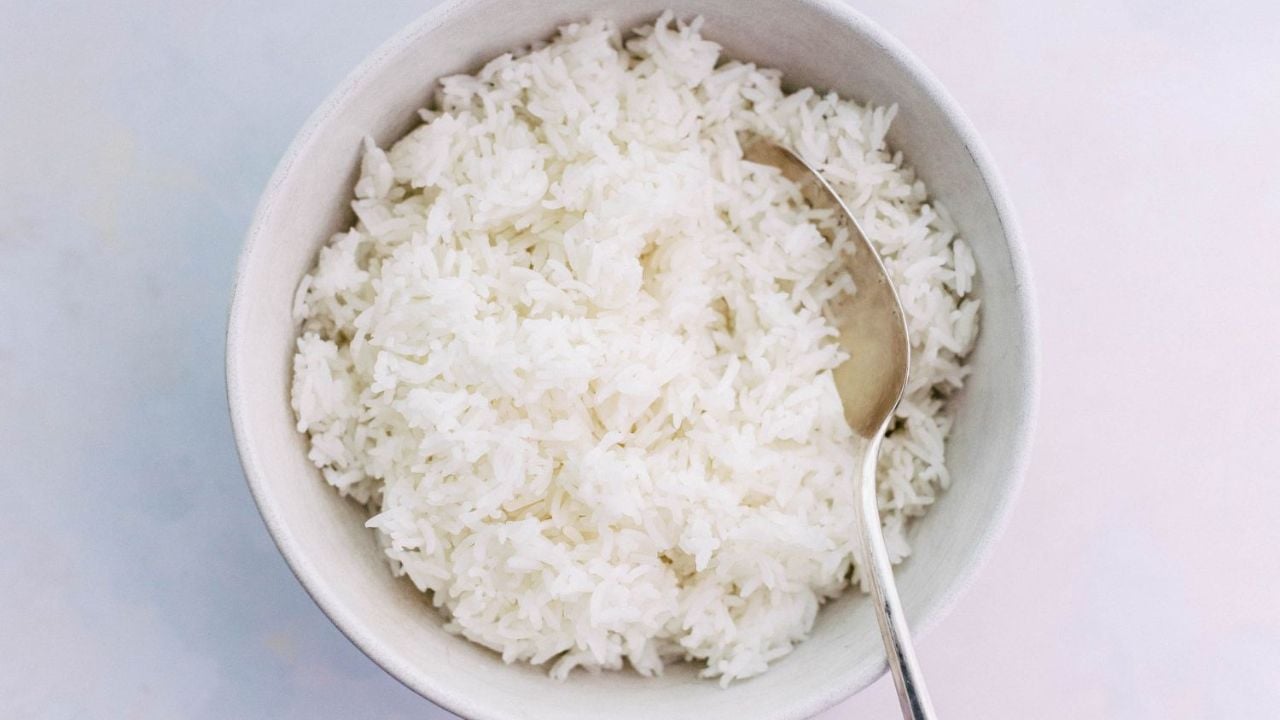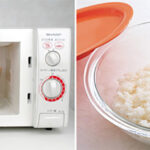It’s common for many people to reheat leftover rice to eat throughout the day. However, if not reheated properly, your rice can lose its flavor and even pose some health concerns. Here are some simple and convenient methods to reheat rice that everyone should know.
Reheating Rice in a Microwave
If you only need a small portion of rice and are short on time, you can use a microwave. Place the rice in a bowl or specialized container, add a little water, and cover with plastic food wrap.
Put the bowl in the microwave, press the start button, and wait for a few minutes. If the rice isn’t hot enough, heat it for an additional 30 seconds to ensure it’s soft and moist.

Make sure to cover the rice before placing it in the microwave.
Reheating Rice with a Steamer
Not many people know that one of the best ways to evenly heat rice and retain its flavor is by using a steamer. Once the water in the steamer starts boiling, place the rice in a tray, cover, and steam for about 10 minutes. For added flavor, you can steam the rice with pandan leaves or drizzle some sesame oil over it.
Reheating Rice in a Rice Cooker
Your rice cooker isn’t just for cooking rice; it can also be used to reheat it. First, spread the leftover rice evenly in the cooker for more uniform heating. Then, add some filtered water to create moisture and make the rice softer. Adjust the amount of water according to your preference for dry or sticky rice.
After that, press the “Cook” button and wait for 5 to 10 minutes. Avoid leaving the rice on the “Warm” setting for too long, as it can dry out and become less tasty.

Add 1 to 2 teaspoons of filtered water before reheating rice in a rice cooker.
Reheating Rice While Cooking Fresh Rice
Many people have the habit of steaming leftover rice while cooking fresh rice. When the freshly cooked rice is almost ready, use a spoon to push it to one side and add the leftover rice to the corner of the pot. Do not mix the two portions; wait until the leftover rice is hot before fluffing them together.
Notes on Reheating Rice
– If you have leftover rice from a meal, it’s best to portion it into small containers. Let the rice cool to room temperature, then cover and store it in the fridge. Try to consume the rice within a day of cooking, and do not leave it at room temperature for more than 2 hours.

Avoid reheating rice multiple times to maintain its flavor and quality.
– It’s best to reheat rice only once after cooking, as multiple reheatings can reduce its flavor and quality and may even increase the risk of food poisoning.
– During the reheating process, maintain a temperature of at least 74°C (165°F) to eliminate any harmful bacteria.
– When reheating rice in the microwave, cover it with a damp cloth or plastic food wrap to retain moisture and enhance flavor.
The Secret to Wealth: Unveiling the Ancient Practice of the Three Jars of Rice, Salt, and Water on the Ancestral Altar
In the realm of feng shui, placing three jars of rice, salt, and water on an altar is a symbolic gesture of inviting good fortune and prosperity into one’s home. This ancient practice is believed to attract positive energy and create a harmonious environment, bringing balance and abundance to those who embrace it.
The Ultimate Guide to Mastering Sticky, Delicious Rice with an Electric Rice Cooker
“Mastering the art of cooking sticky rice to perfection in a rice cooker is no easy feat, but with our expert guide, you’ll be whipping up delicious batches with ease. Our step-by-step instructions will ensure your sticky rice is the talk of the town, with a texture that’s simply irresistible. Get ready to impress your taste buds and become the ultimate sticky rice connoisseur!”



































